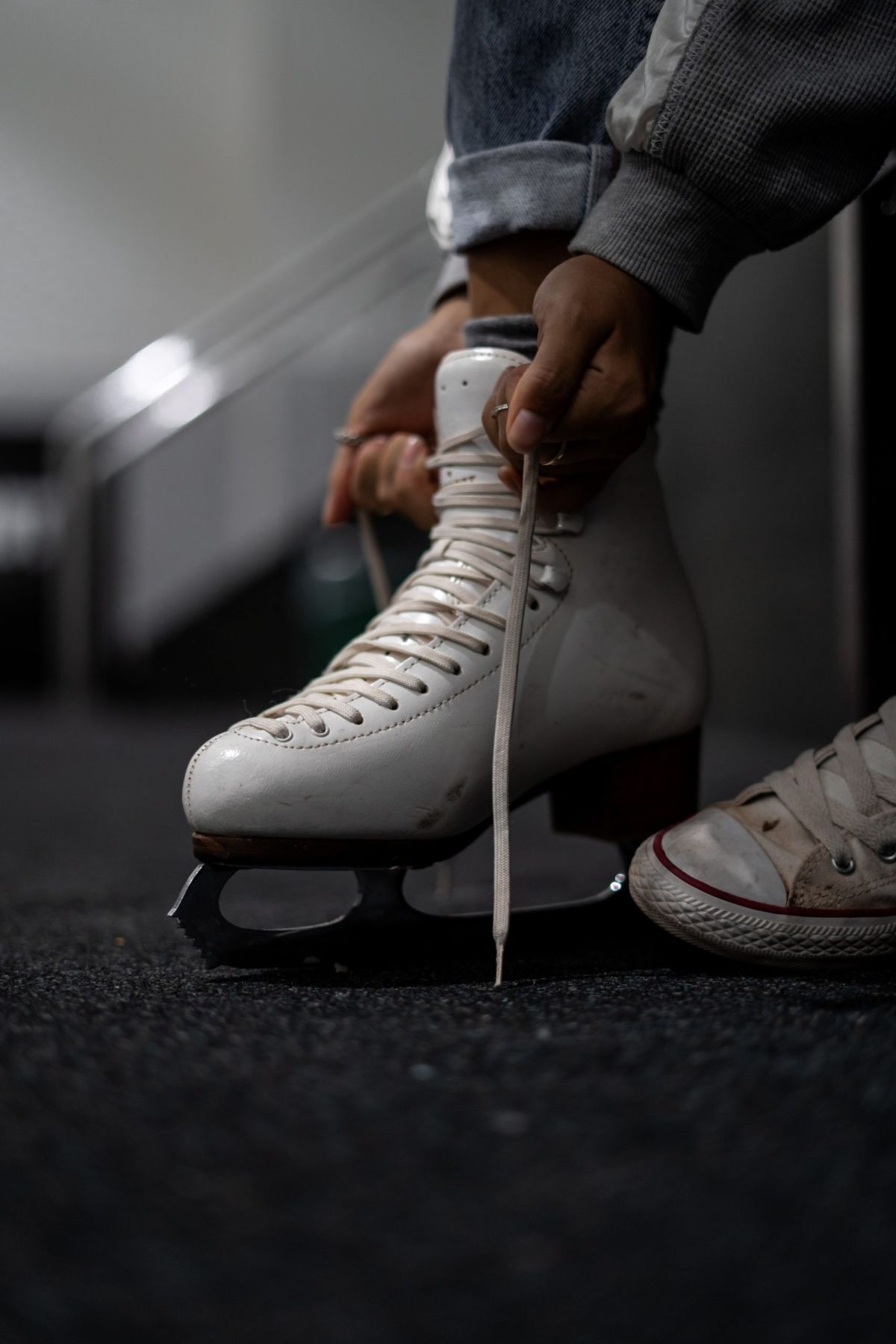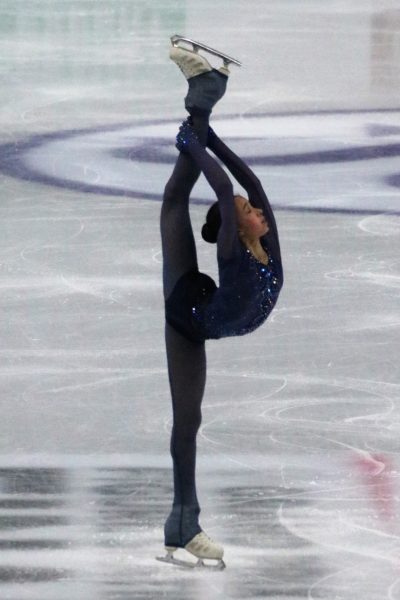‘Irreparable harm’: The events that unfolded before and after the scandal that rocked Beijing 2022

When Kamila Valieva was cleared of her doping suspension on February 14 2022, the Court of Arbitration for Sport stated that if the teenage prodigy was prevented from competing, it would cause her ‘irreparable harm’. However, Valieva was already subjected to ‘irreparable harm’ prior to the Olympics and her doping scandal. The harm began with the coaching team that she belongs to, Sambo-70, and its controversial figurehead, Eteri Tutberidze.
Figure skating has been historically riddled with controversy, from Adelia Sotnikova’s surprise win in 2014 to a joint gold in the pairs event in 2002. With this scandal, and further exposure of Tutberidze’s methods, might this incident be the nail in the coffin for figure skating and its legitimacy as a sport?
Tutberidze has been prominent in the skating world since the 2014 Olympics in Sochi, supplying the games with three successive 15-year-old athletes who wowed viewers across the world with their incredible jumps and apparent mastery of their discipline at such a young age.
Eight years ago, she appeared on the international stage with Yulia Lipnitskaya, her first global star. Lipnitskaya astounded fans in the team event, performing to the soundtrack of Schindler’s List. Steven Spielberg, the composer himself, was moved by the performance, even writing a letter to the skater in the wish that he could watch her perform in the PyeongChang Games in 2018. But by 2016, Lipnitskaya had finished competing and she formally retired a year later at the age of 19, due to extreme leg and hip injury and an ongoing battle with anorexia.
Despite this major loss of talent, the world was now focused on Tutberidze’s upcoming student, Evgenia Medvedeva, who had won the World Championships a year prior at the age of 15. Medvedeva grew in fame as she completed difficult jump combinations and had an ongoing two-year win streak internationally leading to her being the frontrunner for the PyeongChang games. Just before the Olympics however, she suffered a stress fracture in her foot. So, despite only being 18 years old at the time, she was ultimately outshone by her newly senior teammate 15-year-old Alina Zagitova, who won the gold medal.
Medvedeva left the coaching team in the same year and informed the press of the gruelling methods that Zagitova and herself were subjected to in preparation for the games. These included water being withheld from them for the entire competition as it would add to their weight, and reportedly being dragged around the rink by their hair if they messed up on their practice skates. Both athletes are now retired from skating.
Tutberidze’s two-season stars continued in their domination as following the PyeongChang games, three of her quad and triple axel jumping students were now eligible for senior competition.
Aliona Kostornaia, Alexandra Trusova and Anna Shcherbakova would repeatedly take a sweep of the podium at major events for two years. Despite their questionable technique, their high scoring jumps were rewarding them – even if they were not executed well. In 2021, Kamila Valieva, their teammate moved up into the seniors and was able to perform the quads and triple axel with ease and consistency, having the advantage of being two years younger.

Valieva was packaged as the favourite for the Olympics since she won gold at the Russian Championships (the same event in which she tested positive for trimetazidine) in 2021.
But after her viral skates in the team event, it was announced on February 11 that she had been doping before the games. On February 14, the Court of Arbitration for Sport (CAS) allowed her to compete in the individual event under the reasoning that not only was she a ‘protected person’ in the anti-doping code, but also it would cause her ‘irreparable harm’ not to do so.
She then led in the short program, outplacing Japanese skater, Wakaba Higuchi by 9 points even though Higuchi performed the exact same elements to a higher level. It appeared as if Valieva was still destined to win and was able to still somewhat perform well under the pressure. It’s difficult to understand how the decision to allow Valieva’s participation could be justified as ‘irreparable harm’ in this case – especially because it has arguably harmed talented skaters such as Higuchi who can never catch up to Tutberidze’s team, even though they are performing objectively better and most importantly doing it clean.
The free skate began on February 17, and in the final group, Trusova and Shcherbakova placed very highly with scores that appeared to be inflated in comparison with Trusova’s lack of performance quality and Shcherbakova’s dubious quad jumps. Valieva succumbed to the pressure and fell on her high scoring jumps and fell into 4th place, leaving Shcherbakova with the gold. The first words Valieva is greeted with once leaving the ice are from Tutberidze: “Why did you let it go? Why did you stop fighting?”.
Valieva was scolded and was only consoled by a Beijing volunteer. No one from her coaching team offered any comfort to the 15-year-old who had just failed at her one chance at Olympic gold and now faced being known as the athlete caught doping for the remainder of her career. How was it deemed that this would be less harmful for the teenage athlete than just allowing her to withdraw from the games?
This decision not only harmed her but her teammates, as following Valieva’s defeat, Trusova was found to be hysterical, refusing to take her place on the podium and was translated as saying “I hate you, you knew everything” to Tutberidze. The champion, Shcherbakova, was left alone in the green room with none of her team there to congratulate her and said to reporters that she felt “emotionally empty inside” after winning the most important medal of her career.
Only Japanese skater, Kaori Sakomoto appeared to be gleeful on the podium after achieving the bronze.

As the shunned athlete flew back to Moscow amidst the closing celebrations and left without a medal nor any consolation from her coaches, the world could only question whether the disqualification of Valieva would have actually caused her ‘irreparable harm’.
It can be predicted that Valieva, along with Trusova and Shcherakova, won’t be present at the next games as their growing bodies are most likely already damaged beyond repair and may only last them another season or so. It is clear that their mental wellbeing has also experienced ‘irreparable harm’, as demonstrated by their reactions following the free skate. And skaters such as Rika Kihira and Bradie Tennell have also suffered ‘irreparable harm’ as they are both injured from trying to catch up to the Russians, leading them to miss out on the Olympics altogether.
Even with the ISU proclaiming that it will raise the age requirement, the ‘irreparable harm’ upon figure skating has been exposed. It is unclear whether this sport will ever regain its dignity or legitimacy again without proper and fierce intervention in Eteri Tutberidze’s team.







